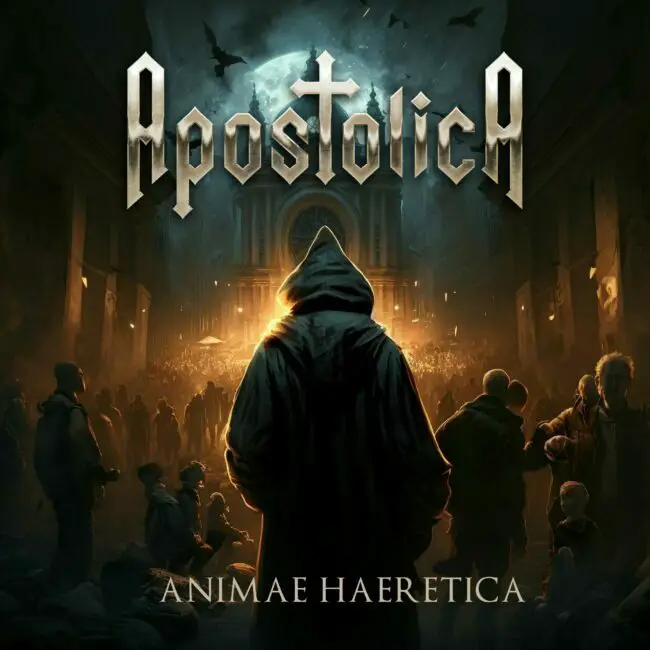
“Animae Haeretica” draws inspiration from the obscure history of the Apostolics (a Christian sect founded in Northern Italy during the late 13th century by Gherardo Segarelli). The information I found is that Gherardo Segarelli was burned at the stake in 1300 by the inquisition.
The Apostolics eventually spread not only throughout Lombardy but also Germany, France, Spain, and England. Some Apostles were traduced at a council in Würzburg and a decree was issued which forbade them to preach and beg and the people were warned against encouraging them by giving food or water. Other Apostles were proscribed in England at a council at Chichester in 1289; it is not certain if these sects were directly connected to that of Segarelli, there are however many analogies between them.
At a later point in 1300 followers of the Apostles were found in Spain where one Richard of Alexandria was successful in his preaching, particularly in Galicia. In 1320, Peter of Lugo — an Apostle follower of Richard — was brought before the Inquisition in Toulouse.
It was in Lombardy where the disciples of Segarelli had great success and started to attract enemies. The bishop of Parma was informed in 1280 that Segarelli was directing invectives against the Church so he had him apprehended immediately. After examination the authorities concluded that he was a poor, demented visionary and released him.
In 1286 however, probably pressed by the Inquisition, the Bishop banned him from the city. It appears that he broke the ban in 1294, returning clandestinely to his hometown. He was again brought before the Bishop, abjured and condemned to perpetual imprisonment while four of his followers were burnt alive. It is not clear why, but in 1300 he was interrogated again by the Grand Inquisitor of Parma: found guilty of relapsing into errors formerly abjured, he was thus burnt at the stake.
Of course, this information was taken from the Wikipedia, but the sources given are pretty adequate. My dear child of the night believe it or don’t give a damn. Truth to be is that the info explains “Animae Haeretica” with flying colors not only the lyrics, but also the band’s iconography.
The Epic Power Metal the band performs has its roots in the band’s lyrical content. I guess it’s fair to say the style is a perfect match with the subjects the band likes to cover. It’s hard to wonder a song as “Gloria” not being Epic Power Metal. Pretty hard due to the emotional content. By the way, there is a Catholic hymn that is called Gloria. Besides that, Apostolica have a prone to write very singalong choruses that stick to the fan’s mind. It’s not only “Gloria” but all tracks have the strong emotional content. Following track, for instance, “Heretics” also has a strong chorus.
The mood Apostolica give to their music is highly influenced by the keyboards. It’s not that they are prominent, but they influence a lot in their music. Album warmer and tittle track “Animae Haeretica” tells this tale better. The guitars have a neoclassical touch which gives the songs an outstanding grip. Tracks as “Tomorrow Belongs to Me” have that apostolic touch which makes it sounds almost as a prayer. The intent here, of course, is to be heretic, but keeping the faith, if you know what I’m saying. Not all heretics are non-believers, in fact, most of them are true believers who somehow disagree with the rules. That is Apostolica.
Apostolica “Animae Haeretica” will be released on September 22nd via Scarlet Records.
Track Listing:
- Animae Haeretica
- Angel of Smyrna
- Rasputin
- Black Prophets
- Gloria
- Heretics
- Tomorrow Belongs to Me
- Fire
- Veritas
- Skyfall
- Rest in a Bed of Roses
Watch “Rasputin” official music video here:
1840
